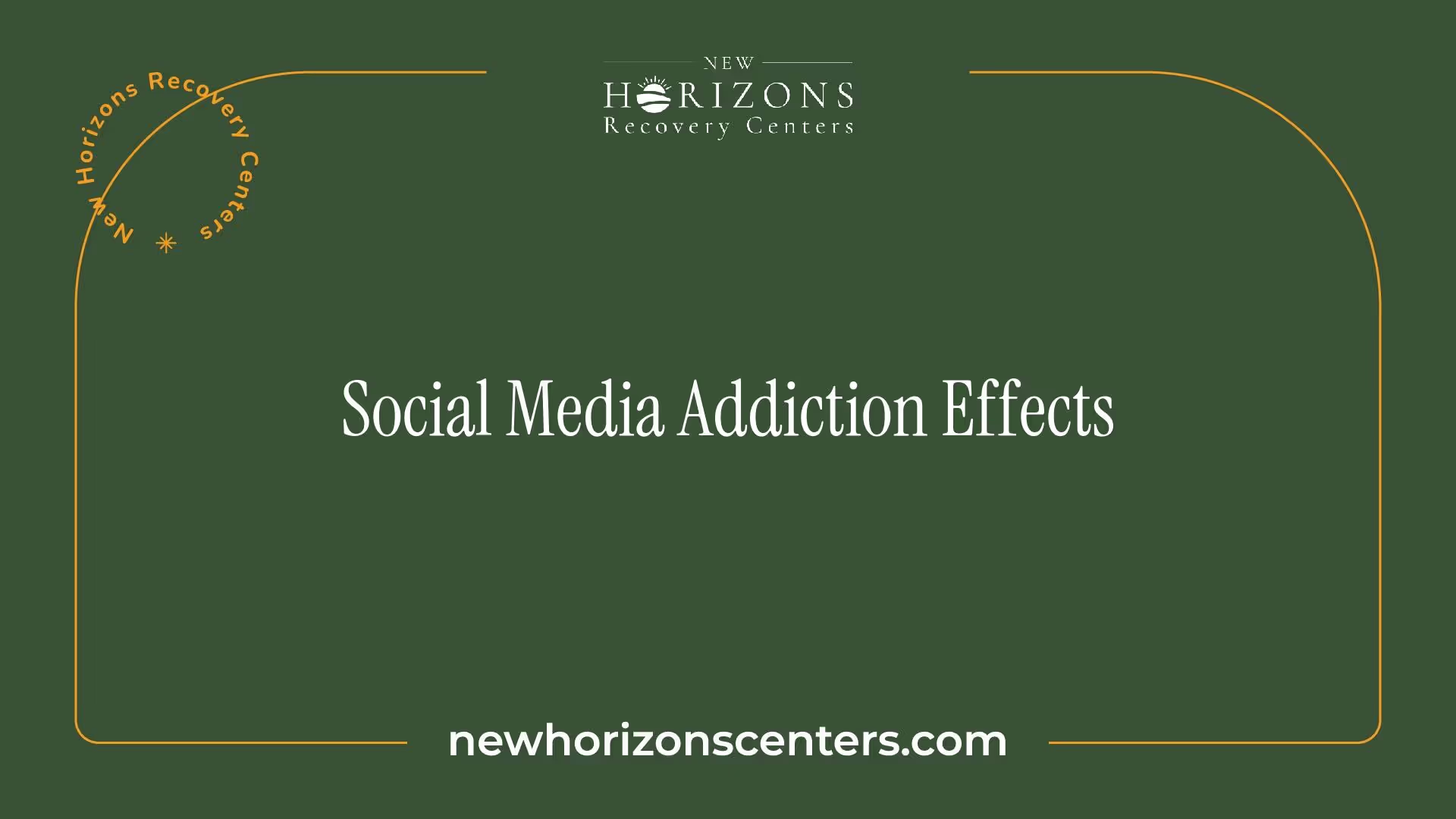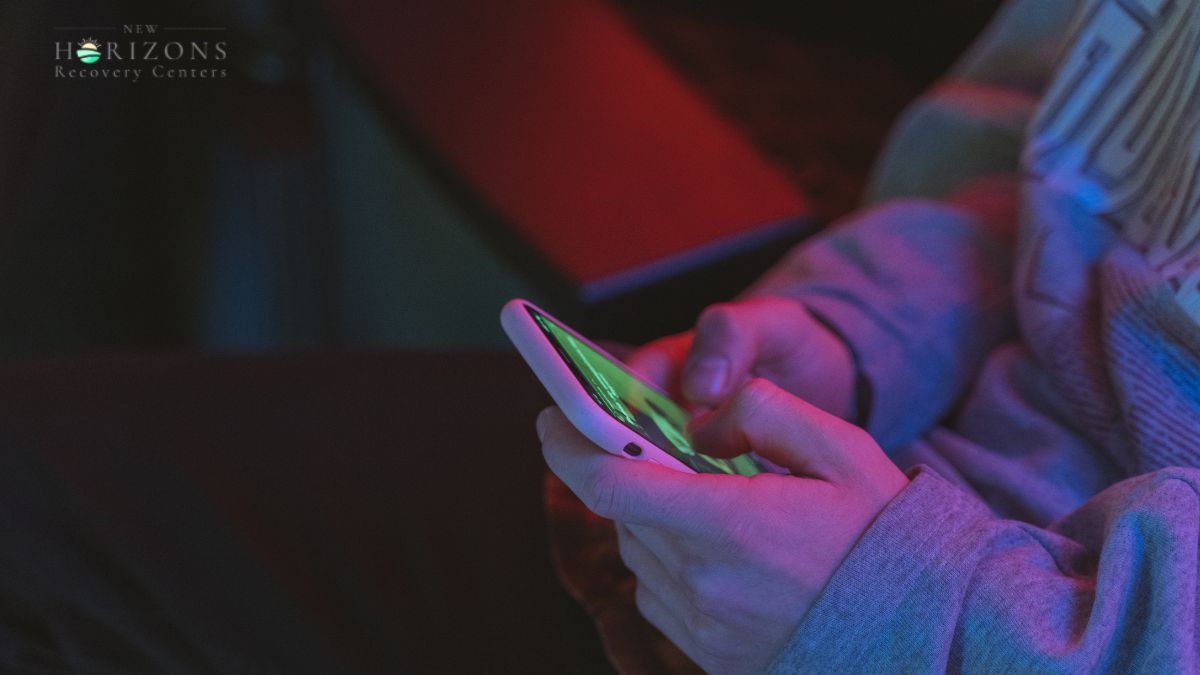
Impact of Social Media Addiction
In the realm of relationships, social media addiction has both positive and negative ramifications, shaping the dynamics between individuals in various ways.
Revamping Relationships
Social media platforms have revolutionized relationships, particularly in the context of long-distance partnerships. What was once a challenging aspect of relationships has transformed into an opportunity for growth and intimacy, with platforms allowing for constant communication and real-time sharing of experiences [1].
Furthermore, the digital age has broadened the dating landscape, enabling individuals to connect with potential partners beyond geographical limitations. This expansion of the dating pool has enriched relationships by fostering diversity and introducing people to unique and varied connections.
Negative Effects on Relationships
On the flip side, social media addiction can lead to detrimental impacts on relationships, primarily through unrealistic expectations and miscommunication.
It's crucial to strike a balance between the benefits and drawbacks of social media in relationships, acknowledging the impact of addiction on communication, expectations, and overall relationship satisfaction. By recognizing the potential pitfalls of social media use and actively working towards healthy boundaries and communication strategies, individuals can navigate the complexities of modern relationships in the digital age.

Relationship Dynamics
In the realm of relationships, the impact of social media addiction can manifest in various ways, influencing the dynamics between individuals. Understanding the challenges posed by social media addiction is essential in navigating healthy relationship dynamics.
Long-Distance Challenges
While social media offers a platform to bridge geographical gaps and maintain connections across long distances, it can also introduce challenges. According to Medical News Today, although social media helps people stay connected with long-distance friends and family, excessive reliance on digital communication may lead to less quality in-person time spent with loved ones. This shift in quality time can potentially result in relationship dissatisfaction, especially if online interactions replace meaningful face-to-face interactions.
Unrealistic Expectations
Social media platforms often portray curated and idealized versions of individuals' lives, which can lead to the formation of unrealistic expectations in relationships. As highlighted by Mind Body Counseling Associates, constant exposure to these meticulously constructed images and narratives can create a comparison mindset. When individuals compare their real-life experiences to the seemingly perfect lives depicted on social media, it may trigger feelings of inadequacy, leading to body image issues, decreased self-esteem, and ultimately affecting relationship dynamics.
Miscommunication Issues
Text-based communication on social media lacks the nonverbal cues present in face-to-face interactions, such as tone of voice and facial expressions. This absence of nonverbal cues can result in miscommunication and misunderstandings, potentially straining relationships. According to Mind Body Counseling Associates, misinterpretations of messages or posts can sow seeds of discord between individuals, leading to conflicts and unnecessary tension.
Navigating the challenges posed by social media within relationships requires a careful balance of online interactions and in-person connections. By recognizing the potential pitfalls of long-distance communication, managing unrealistic expectations, and addressing miscommunication issues, individuals can foster healthier and more resilient relationship dynamics amidst the digital age.

Positive Influences
In the realm of social media addiction treatment programs, it's crucial to recognize that while excessive social media usage can have detrimental effects on relationships, there are also positive influences that can enhance connectivity and communication within relationships.
Managing Boundaries
One positive aspect of social media in relationships is the ability to establish and manage boundaries effectively. Setting boundaries around social media usage can help prevent misunderstandings and conflicts. By openly communicating about preferred levels of sharing and privacy on social platforms, partners can foster trust and respect within their relationship.
By having clear boundaries in place, individuals can avoid potential triggers for jealousy or insecurity that may arise from excessive social media interactions. Establishing mutual boundaries can create a sense of security and strengthen the foundation of a healthy relationship.
Enhancing Connectivity
Social media platforms play a significant role in enhancing connectivity between individuals in various types of relationships. For partners in long-distance relationships, social media serves as a vital tool for maintaining a constant flow of communication and sharing daily experiences in real-time.
Moreover, social media enables people to stay connected with friends, family members, and colleagues, fostering a sense of community and support. By leveraging social platforms to share updates, exchange messages, and engage in virtual interactions, individuals can bridge physical distances and strengthen their relationships.
Communication Improvement
Another positive influence of social media on relationships is the improvement in communication it facilitates. Social media platforms offer various channels for communication, such as messaging, video calls, and sharing multimedia content. These tools can help partners express their thoughts, feelings, and emotions more effectively.
Furthermore, social media can aid in sexual gratification, particularly in romantic relationships, through the consumption of content that promotes intimacy and desire. It allows partners to engage in conversations, share fantasies, and explore different aspects of their relationship in a digital space [2].
By leveraging social media for communication and expression, individuals can strengthen their emotional connection, foster intimacy, and navigate challenges more effectively within their relationships. Embracing the positive influences of social media while managing its potential drawbacks is essential for maintaining healthy and fulfilling relationships.

Social Media Addiction Effects
The effects of social media addiction extend beyond individual well-being and can significantly impact relationships. Understanding these effects is crucial in addressing the challenges they pose to interpersonal dynamics.
Mental Health Consequences
Excessive engagement with social media platforms can introduce a host of mental health consequences. It can contribute to symptoms of depression, anxiety, and stress, manifesting as negative thoughts and feelings. The constant comparison promoted on social media, coupled with the pressure to present an idealized version of one's life, can erode self-esteem and foster feelings of inadequacy.
In addition, the pervasive nature of social media can lead to disrupted sleep patterns, with adverse effects on mental health. Preoccupation with social media before bedtime can disturb the body's natural sleep-wake cycle, resulting in delayed sleep onset and poor sleep quality [3]. This sleep deprivation can exacerbate existing mental health issues and increase the risk of other conditions such as anxiety disorders and eating disorders.
Relationship Satisfaction Decline
While social media can facilitate connectivity, it also presents challenges to relationship dynamics. It may lead to relationship dissatisfaction, particularly in romantic partnerships. Spending excessive time on social media can detract from quality in-person interactions, fostering feelings of disconnection and loneliness within relationships. The comparison culture promoted on social platforms can breed jealousy and insecurity, further straining relationships.
Furthermore, the consumption of idealized portrayals of relationships on social media can set unrealistic expectations, making it difficult for individuals to appreciate and nurture the genuine connections in their own lives. This may result in a decline in relationship satisfaction as individuals grapple with the perceived gap between reality and the curated content they encounter online.
Potential for Infidelity
One of the concerning consequences of social media addiction is the increased potential for infidelity within relationships. The accessibility and anonymity offered by social platforms can facilitate inappropriate interactions and emotional affairs. The lure of reconnecting with past flames or forming new connections under the guise of online anonymity can blur boundaries and pave the way for infidelity.
To mitigate the negative impacts of social media addiction on relationships, it is essential for individuals to recognize the warning signs of addiction (5 signs social media use has become an addiction), seek professional help when necessary, and establish clear boundaries around social media usage within their relationships. By addressing these effects head-on, couples can navigate the complexities of social media while safeguarding the integrity and intimacy of their relationships.

Treatment and Intervention
When addressing social media addiction, it is imperative to consider effective treatment and intervention strategies for individuals struggling with excessive social media use. Recognizing the signs of addiction, seeking professional help, and utilizing therapies like cognitive behavioral therapy (CBT) play a pivotal role in combatting this modern-day challenge.
Cognitive Behavioral Therapy
Cognitive Behavioral Therapy (CBT) is a widely recognized therapeutic approach in managing social media addiction. This treatment method aims to assist individuals in understanding and altering negative thought patterns that contribute to addictive behaviors. By addressing the underlying causes of addiction, CBT can help individuals develop healthier habits and coping mechanisms to reduce their reliance on social media platforms. CBT is effective in reducing the impacts of social media addiction on mental health and academic performance [4].
Recognizing Addiction Signs
Recognizing the signs of social media addiction is the first crucial step towards initiating the treatment process. Some common signs include spending excessive amounts of time on social media, neglecting responsibilities, experiencing withdrawal symptoms when offline, and using social media as a coping mechanism for stress or anxiety. Understanding these indicators can help individuals, their loved ones, and professionals identify the presence of addiction and take proactive steps to address it.
Seeking Professional Help
Seeking professional help is essential in effectively managing social media addiction. Mental health professionals, such as therapists and counselors, can provide tailored support and guidance to individuals struggling with addiction. Additionally, interventions led by trained professionals can facilitate open communication, encourage behavioral change, and pave the way towards recovery. Initiating the conversation about addiction and proactively seeking assistance from experts are crucial steps in overcoming social media addiction and fostering healthier relationships.
By highlighting the significance of cognitive behavioral therapy, emphasizing the importance of recognizing addiction signs, and encouraging the initiative to seek professional help, individuals can take positive strides towards addressing social media addiction and its detrimental effects on relationships and overall well-being.
Finding Balance
In the realm of relationships affected by social media addiction, finding a balance between the digital world and real-life interactions is essential for fostering healthy and meaningful connections. This equilibrium can be achieved through offline quality time, establishing clear communication, and overcoming the challenges associated with addiction.
Offline Quality Time
Dedicating offline quality time to your partner is vital for nurturing emotional intimacy and understanding within a relationship. While social media offers a platform for constant communication, nothing can replace the depth of connection that comes from face-to-face interactions. It is during these moments that true emotional bonds are strengthened and maintained.
Benefits of Offline Quality TimeEnhanced Emotional IntimacyImproved UnderstandingStrengthened Bonds
Establishing Clear Communication
Effective communication serves as the cornerstone of any successful relationship. When dealing with the impacts of social media addiction, open and honest communication becomes even more crucial. By establishing clear communication channels, partners can address concerns, express needs, and work together to navigate the challenges that arise from excessive social media use.
Setting boundaries and discussing expectations regarding social media usage can help both individuals feel respected and understood. This proactive approach can prevent misunderstandings and conflicts, ultimately strengthening the foundation of the relationship.
Importance of Clear CommunicationPrevents MisunderstandingsFosters Trust and RespectEnhances Connection
Overcoming Addiction Challenges
Overcoming social media addiction within the context of a relationship requires a concerted effort from both partners. Recognizing the signs of addiction, such as increased screen time, withdrawal symptoms when not online, or neglect of real-life responsibilities, is the first step towards intervention [7].
By seeking professional help, individuals can access resources and support to address the underlying causes of addiction and develop coping mechanisms to manage their social media usage effectively. Techniques such as cognitive-behavioral therapy can be instrumental in reshaping unhealthy behaviors and establishing healthier habits in the digital realm.
Strategies for Overcoming Addiction ChallengesSeeking Professional HelpImplementing Therapy TechniquesBuilding Healthy Habits
By prioritizing offline quality time, fostering clear communication, and actively addressing addiction challenges, couples can navigate the complexities of social media's influence on relationships and cultivate strong, fulfilling connections that withstand the pressures of the digital age.
References
[2]:
[3]:
[4]:
[5]:
[6]:
[7]:

-ink.jpeg)
-ink.jpeg)
-ink.jpeg)
-ink.jpeg)

-ink.jpeg)
